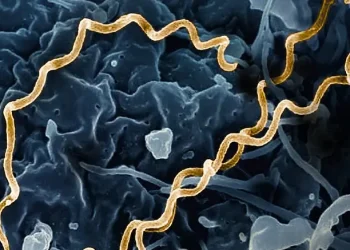A groundbreaking NIH-funded study reveals that aging affects brain cell activity differently, with some cells experiencing significant genetic changes.
Researchers hope this discovery will reshape understanding of neurodegenerative diseases and aging-related brain functions.
Introduction
Aging impacts brain cells in unique ways, according to recent research by the National Institutes of Health (NIH). Using advanced genetic tools, scientists analyzed how brain cell activity changes over time, uncovering a roadmap that could transform treatments for neurodegenerative diseases.
This study, conducted on mice, emphasizes the critical role of certain brain regions in aging.
Study Overview and Objectives
Main Findings on Brain Cell Aging
NIH researchers discovered that specific brain cells, particularly those in the hypothalamus, experience greater genetic changes due to aging. This region, essential for regulating metabolism, hormones, and memory, showed increased immune activity and decreased neuronal signaling.
Tools and Methodology
The team analyzed over 1.2 million brain cells using tools developed through the NIH BRAIN Initiative. This comprehensive approach allowed them to examine how aging affects cellular activity across multiple brain regions, offering unprecedented insight into genetic shifts.
Impacts of Aging on Brain Function
Neuronal Circuits and Immune Systems
Researchers observed reduced activity in genes linked to neuronal circuits, which play a key role in memory and learning. At the same time, genes associated with immunity showed heightened activity, indicating potential inflammation as a contributor to age-related brain disorders.
Hypothalamus and Hormonal Regulation
Cells near the third ventricle, a key area in the hypothalamus, were identified as particularly sensitive to aging. Changes in this region may affect hormones controlling hunger, sleep, and body temperature, highlighting its central role in brain aging.
Comparative Insights on Brain Aging
| Brain Region | Affected Functions | Observed Changes |
|---|---|---|
| Neuronal Circuits | Memory, learning | Decreased genetic activity |
| Immune Systems | Inflammation regulation | Increased activity in immune-response genes |
| Hypothalamus | Hormonal control, metabolism | Altered hormonal pathways and nutrient flow |
Broader Implications for Neurodegenerative Diseases
Understanding Memory and Learning Decline
The study’s findings highlight how genetic changes in newborn neurons contribute to memory and learning issues. These insights may guide research on diseases like Alzheimer’s and Parkinson’s.
Links Between Aging, Metabolism, and Longevity
Previous studies have linked calorie restriction to extended lifespans. This research strengthens connections between hypothalamic activity, metabolism, and dietary interventions for aging-related disorders.
The Takeaway
This NIH-funded study offers a new perspective on how aging affects brain cells, shedding light on the genetic mechanisms behind neurodegeneration. By identifying sensitive regions like the hypothalamus, researchers pave the way for innovative treatments that target aging at a cellular level.
Learn More
Stay updated on groundbreaking discoveries from the NIH Brain Initiative by exploring their latest resources and ongoing research.
Sources: THX News & National Institutes of Health.









